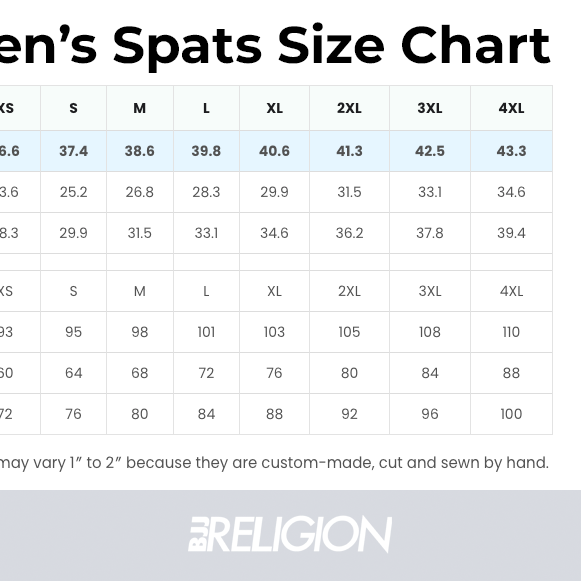How Many Days Per Week Should You Train BJJ?
Training Brazilian Jiu Jitsu for the long term is a major commitment. Regardless of how often you train, you will have to sacrifice some other aspect of life to consistently make time for BJJ on a weekly basis.
But how many days per week should you train Jiu Jitsu?
This is a common question for many BJJ practitioners, and there is no one right answer for every single martial artist.

Source: NJ Training Ground
We break down everything you need to know to assess how many days you should be putting in to reach your goals in the sport and art of Brazilian Jiu Jitsu.
By the time you’re finished reading, you will be mentally prepared to commit to the required training schedule.
For the purposes of this article, we are assuming one training session per day.
However, you can certainly train more than once in a day, which would allow you more total training, or free up another day off without reducing your overall amount of training.
Your goals in BJJ
Before deciding how many days per week you should train BJJ, you need to assess your individual goals to determine your target classes per week.
The most common goals in BJJ include the following:
- Competing at/winning upcoming local tournaments
- Competing at/winning upcoming major regional or global tournaments
- Reaching the next belt rank and eventually getting black belt
- Learning self defense
- Getting physical activity/exercise
- Building and connecting with community
- Having fun
You will likely maintain some of these goals permanently, while others may change throughout your BJJ journey.
Consider which of the above goals you have in BJJ or come up with your own to guide your decision.
Outside life commitments
Life has ups, downs, and different phases that will affect how many days per week you can realistically train BJJ.
Commitments such as school and/or kids often take precedence over BJJ regardless of your goals, and may require you to adjust, at least in the short term, to ensure your schedule remains realistic.
On the other hand, many other recreational activities, or even job and career choices, will compete with BJJ for your time.
In many cases, major BJJ goals such as competition performance and being a professional BJJ athlete will require you to reduce or eliminate the time you spend on activities outside of BJJ, particularly on less important commitments.
At the extreme end of BJJ performance, there are few ways to avoid sacrificing something else in life.
Depending on your phase of life, you may have more or less time in the short term to train. For example, if you have a big project to finish for work or school, then you may need to train fewer days of BJJ for the preceding weeks.
On the flipside, if your schedule is looser for a period of time, it may be a good time to stack as many BJJ classes into your schedule as possible and take advantage of your short term extra time to reach a new BJJ milestone.
BJJ goals and time requirements
Now that you can consider your goals and schedule, let’s break down how these fit into different BJJ schedules.
One day per week
 Training BJJ once per week is not sufficient for much, if any progress. Once per week is appropriate if life gets very hectic and you can barely get to the gym.
Training BJJ once per week is not sufficient for much, if any progress. Once per week is appropriate if life gets very hectic and you can barely get to the gym.
Also, if you just want to have fun and don’t care that you will not improve, then once per week is fine.
An example could be attending a weekend open mat if you week is too busy to get to the gym.
If you are an absolute beginner, once per week is insufficient to see major progress in a reasonable timeframe, but if it’s all you can manage it is still better than nothing.
Two days per week
Twice per week is the bare minimum for consistent progress. If you are recreationally interested in BJJ but cannot afford the time to make more classes, twice per week will improve your BJJ.
If you hope to get a black belt or compete, then training more than twice per week is needed.
However, if you need some basic self defense grappling skills, are slammed for time, or simply enjoy the art, twice per week of quality BJJ training is enough.
Three days per week
Three times per week is one of the ‘sweet spots’ for making good, consistent progress in BJJ without completely molding your schedule around BJJ.
You still need to carve out the evenings, mornings, or weekend days to get to the gym, but you have plenty of days off from BJJ to take care of other things.
If you want to reach an advanced level but do not care about major competition performance, then three times per week is a good minimum.
Four days per week
Training four times per week is the point at which many schedules start to strain.
If you do not train on weekends, this means having just one evening off in the week unless you get to a morning class. This is asking a lot if you are juggling family and career.
However, at four classes per week, your progress will be consistent and substantial, and you can expect to see decent competition performance if you place that emphasis in your training.
Five days per week
 At five sessions per week, you have dedicated a substantial amount of your schedule to BJJ.
At five sessions per week, you have dedicated a substantial amount of your schedule to BJJ.
Even if class is an hour and a half, between prepping, the commute, showering, and shifting gears after class, this is a lot of time.
Training BJJ five times per week is typically done by practitioners with a high emphasis on career BJJ performance.
At this level, some of your sessions will be more technique focused, and others will be heavy on live training.
Furthermore, athletes doing BJJ five times per week are likely doing strength and conditioning on the side, either in conjunction with BJJ or as separate sessions.
Six days per week
At six days per week, you are fully committed to BJJ. You are likely competing often and coaching BJJ as well.
Additionally, you cannot go high intensity on every session with that level of volume.
If you sustain six days per week, your progress will be immense.
Seven days per week
Seven BJJ classes per week is an insane volume, even for high level athletes.
At this level of training, your sessions must be well-planned to ensure you are getting enough recovery.
Your nutrition must be dialed in and you probably cannot sustain multiple other major life commitments.
Training BJJ every day?
If you hypothetically had the time, would training BJJ every day be a good idea or even possible?
It is possible to train BJJ every day, however as discussed, after 5 sessions per week you are unlikely to be able to sustain hard rolling every session for weeks on end.
If you strategically plan your drilling, hard training, and overall lifestyle, training every day is certainly the best way to get as good as you possibly can at BJJ.
So, How Many Days Per Week of BJJ?
Planning your training schedule in 4-week chunks is a good way to commit to your training while remaining adaptable to life’s ups and downs.
Once you’ve assessed your goals in BJJ, look at the next four weeks of your schedule and determine how many days is realistic. Depending on your goals for Jiu Jitsu, and preference on gi or nogi training, you may want to factor that split into your schedule as well, do you want 50/50 gi/nogi mix, or 75/25 gi/nogi mix, etc.
At that point, commit to those time slots and make them sacred in your schedule.
Do not allow anything that is not an emergency to take those time slots – at this point, you should have selected the times you know you can train.
Then, show up to class as scheduled and crush your goals in BJJ!



































































































